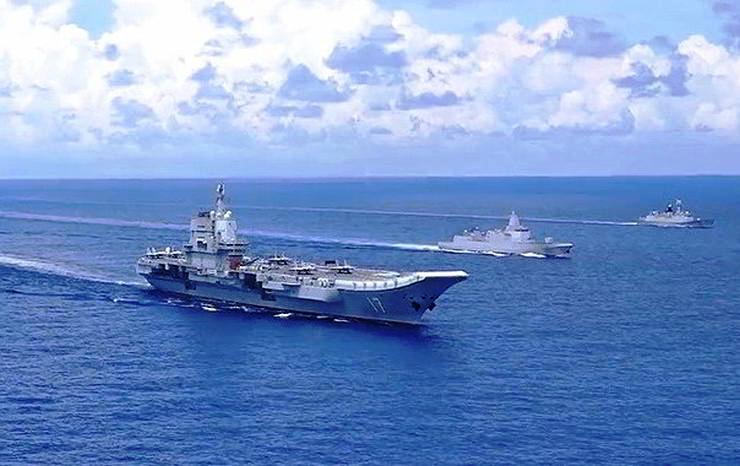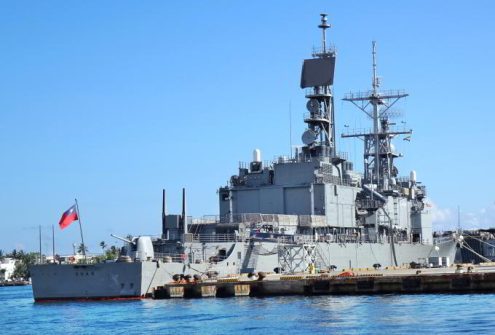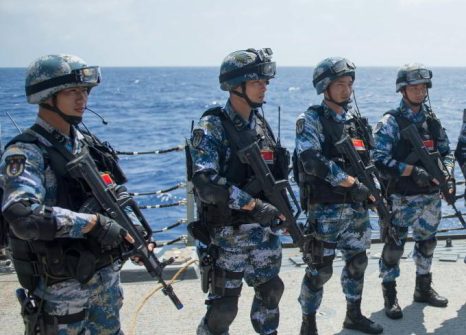Taiwan and the China-US duel.

Relations between Taiwan and China are becoming increasingly heated. The situation began to degenerate further in early February 2025, when the giant TSMC decided to invest more than 100 billion in the US. Furthermore, China’s military expansion is contributing to further strain the complex diplomatic relationship between the People’s Republic of China and Taiwan.
Rising tensions in the Taiwan Strait reached a new high as the Chinese military conducted a large and aggressive military exercise near the island last April. Beijing described the exercises as a “stern warning” to Taiwan, a clear signal of its determination to pursue “reunification” with the island, which it views as an integral part of China.
The Chinese military’s Eastern Theatre Command highlighted the main objective of the exercises was: to test the armed forces’ readiness to conduct integrated operations, including multi-directional precision strikes, assaults on land and sea targets, and the blockade of strategic sea lanes. The exercises, involving warships, combat aircraft, and ground forces, were billed as a simulation of a real conflict, with Beijing indicating that a greater push for Taiwanese independence could
trigger a military response.

A guided missile destroyer of the Taiwan Navy is anchored in Kaohsiung Port. 123rf
Taiwan responded forcefully, activating its defence apparatus, monitoring Chinese movements, and deploying its air and naval forces. The Taipei government condemned the manoeuvres, calling them a violation of international norms and a form of direct intimidation against its sovereignty. In this context, Taiwanese President, Lai Ching-te, reiterated his government’s position, stating that modernity and democracy cannot be defended through force, but through dialogue and mutual respect. Beijing, however, warned that any attempt to separate Taiwan from China would be doomed to failure and would inevitably lead to armed conflict. China’s growing military pressure represents a direct challenge not only to Taipei but also to the geopolitical balance of the entire Indo-Pacific region.
The intensification of Chinese exercises has raised concerns around the world, particularly in the United States and among its Asian allies. Although Washington’s official position has always been to condemn any attempt to change the status quo by force, the US government, under President Donald Trump first and then Joe Biden, and Trump again, has taken a more assertive posture towards China. The White House has renewed its condemnation of Chinese manoeuvres and reiterated its commitment to defend Taiwan, both through diplomatic measures and, if necessary, with the support of the Armed Forces. The US response has also involved the strengthening of regional alliances, as demonstrated by the recent visit of Defence Secretary, Pete Hegseth, to Japan and the Philippines. The construction of a new war command centre in Japan underscores the strategic importance of the region for the United States.

Chinese navy sailors from the guided-missile destroyer Xian. (Photo PLAN)
However, American support for Taiwan is not without uncertainty, fuelled by the internal dynamics of US politics, where the fusion of commercial and security interests has created margins of doubt. An Asian diplomat recently expressed concern about the unpredictability of US policies, fearing that the focus on the economy could undermine the coherence of Washington’s foreign policy.
These uncertainties are fuelling fears that, despite verbal support, the US may not be ready to take decisive action in the event of a military escalation. The “containment strategy” of China, which emerged during the first term of Trump administration, was continued by Biden, but the risk of open conflict continues to raise questions about Washington’s willingness and ability to intervene decisively.

Anti-landing spikes on the beach Kinmen of Taiwan. 123rf
The situation in the Taiwan Strait is a major global geopolitical concern. China’s military exercises have highlighted Beijing’s determination not to tolerate the possibility of Taiwan formally declaring independence. China has stated that any move toward independence will carry the risk of war, and 2027 has been identified as a crucial year in which China may decide to invade Taiwan unless deterred by international pressure. Taiwan’s military preparations, including defence drills and the modernisation of its armed forces, are signs that it is intensifying its preparations for eventual conflict. However, some experts suggest that China is not preparing for an all-out war, but rather a series of indirect manoeuvres and “grey zone” operations to undermine Taiwan’s internal stability without confrontation. China is intensifying its unconventional warfare operations, such as cyberattacks and disinformation campaigns, to weaken the political cohesion and resolve of the Taiwanese leadership. In the broader context of regional dynamics, Taiwan’s future remains uncertain. International alliances, particularly between the United States and its allies in the Pacific, are crucial to maintaining balance in the region. However, China’s increasing military growth and assertiveness could lead to a dangerous escalation. The situation in the Taiwan Strait is, therefore, likely to remain one of the most serious challenges to regional and global stability, with the concrete risk of a conflict that could engulf the entire East Asia region. (Open Photo: The People’s Liberation Army Navy aircraft carrier Shandong with escorting ships underway in the South China Sea. PLAN)
Riccardo Renzi/CgP



